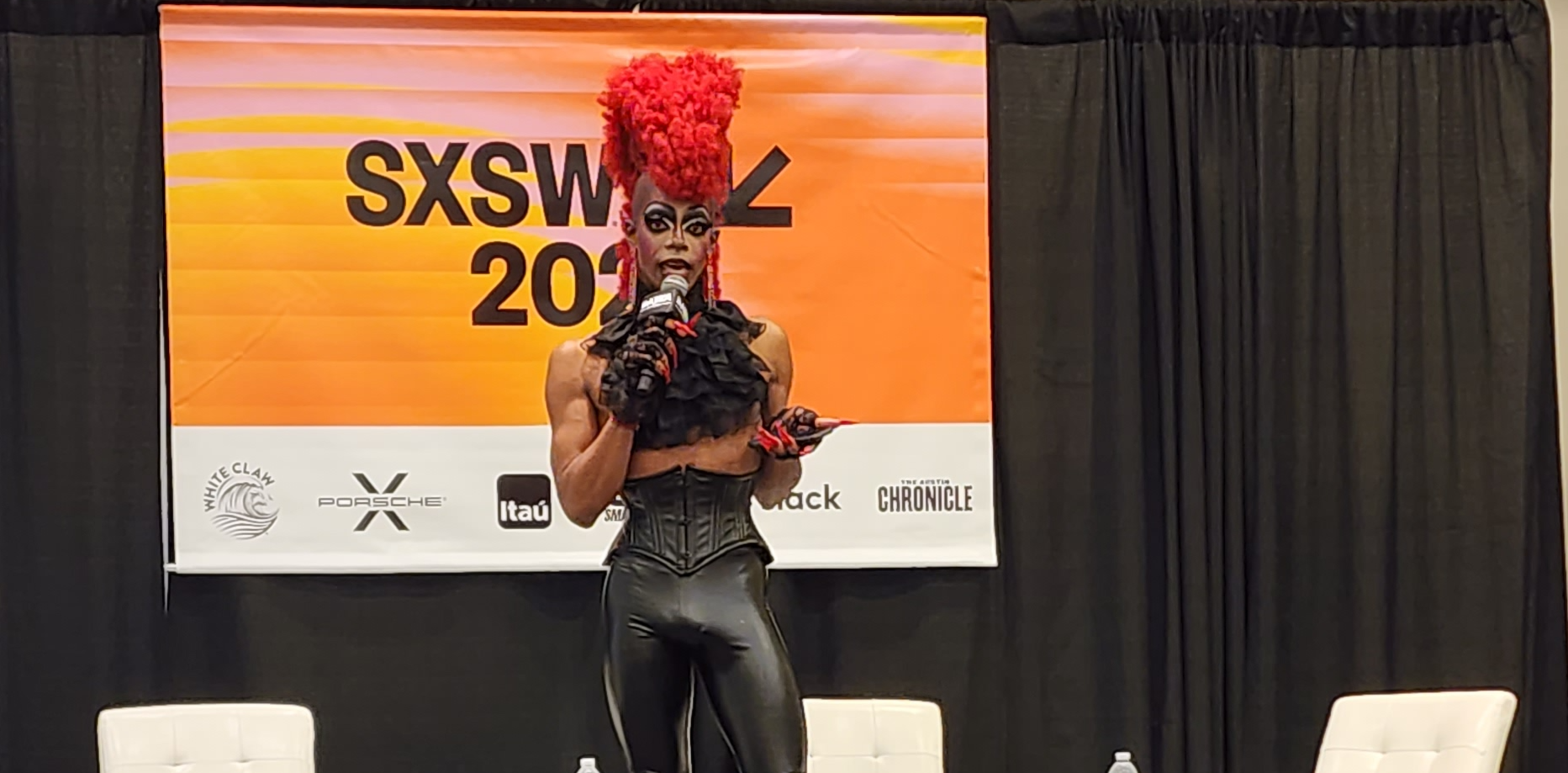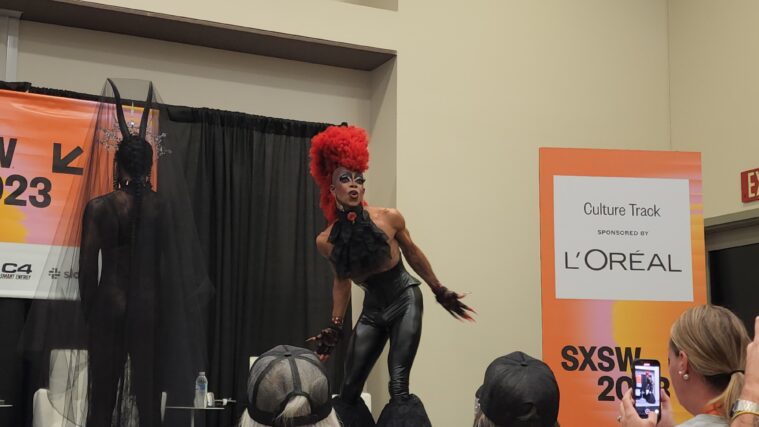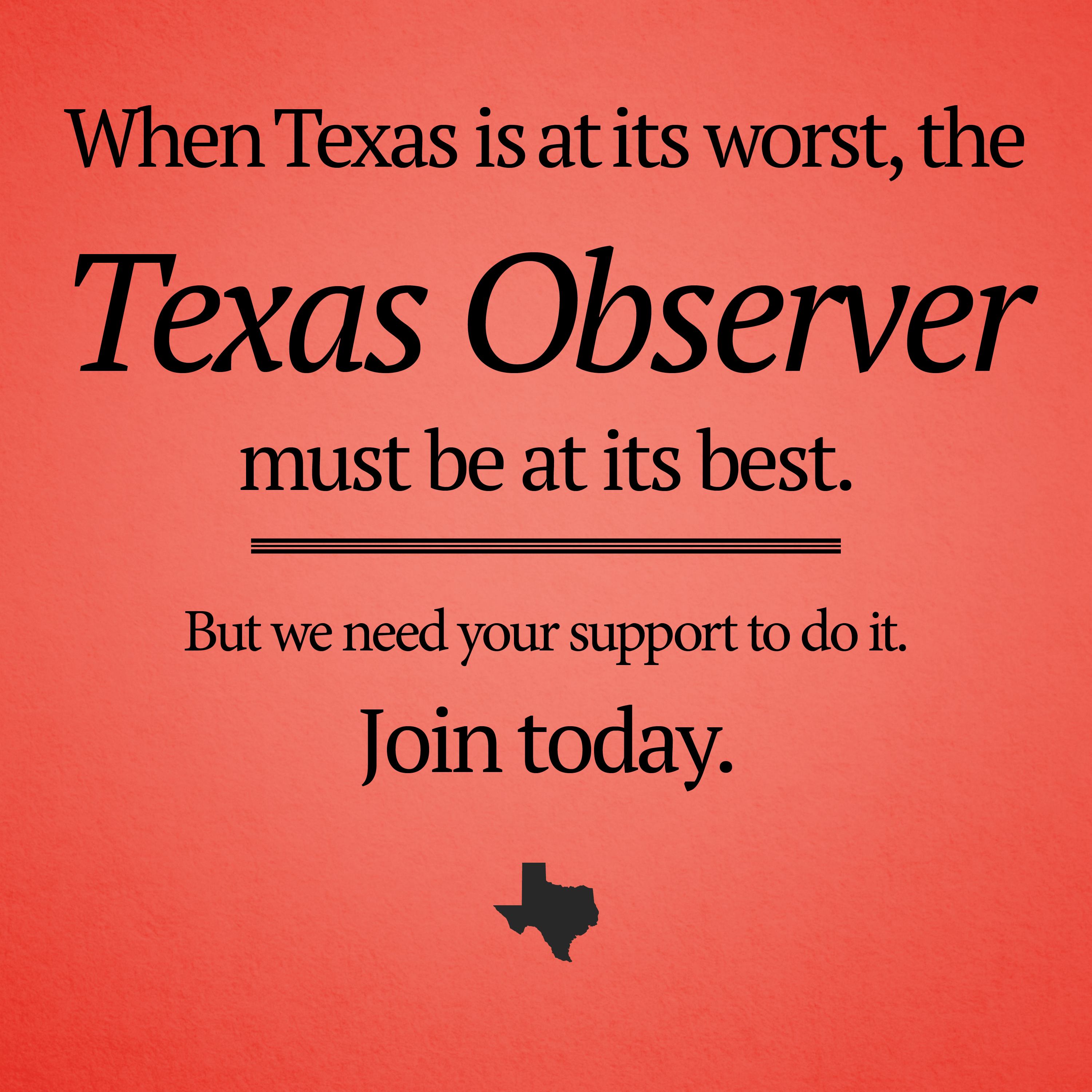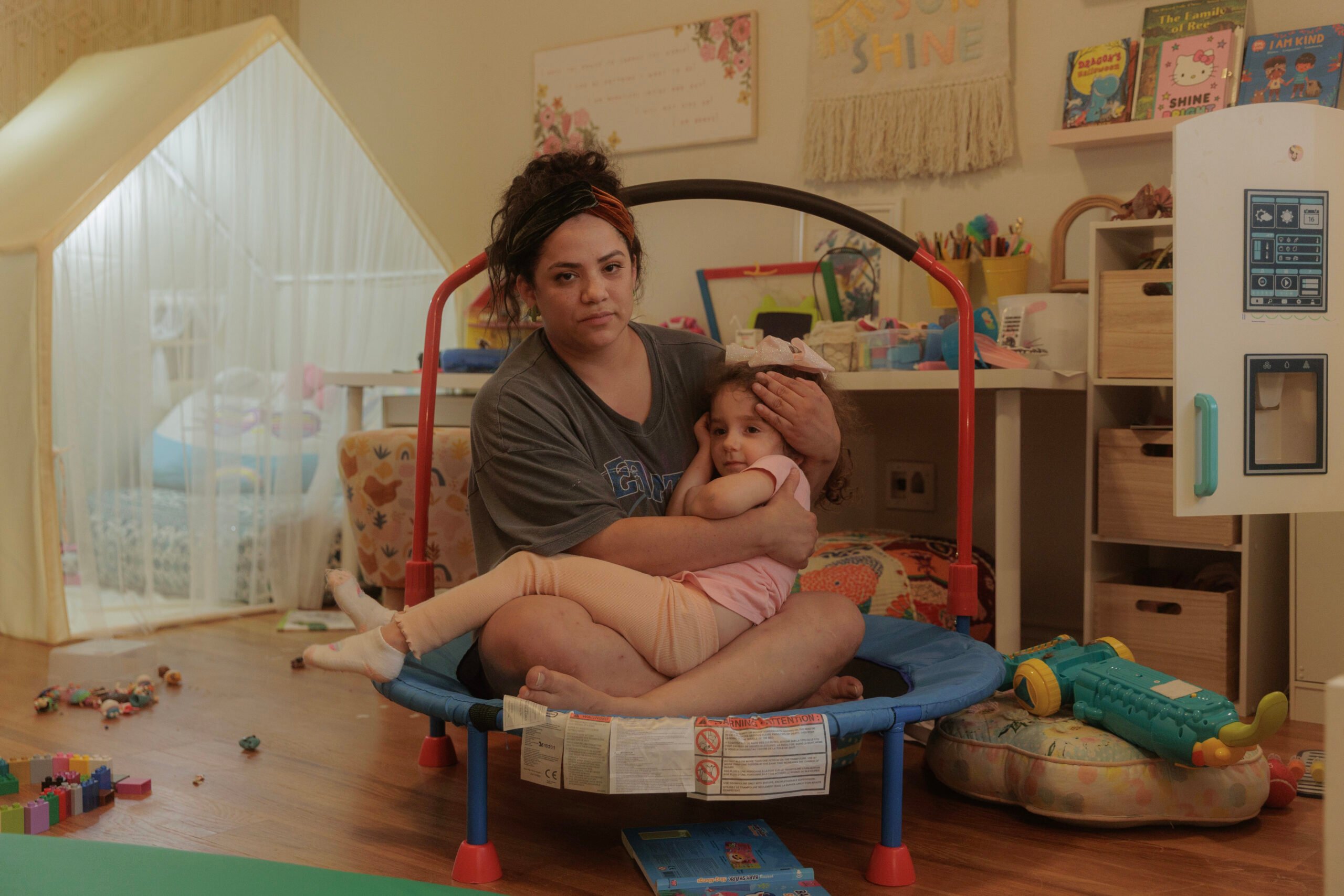
Dragging Democracy into the Future
As the Texas Observer survives to muckrake another day, Steven Monacelli highlights the battle for fundamental rights happening in the Lone Star State.

This is part of our coverage of South by South West (SXSW) 2023.
South By Southwest (SXSW) has been described by the scandal-ridden consulting firm McKinsey as a “contradiction” for remaining forward-looking and innovative into its third decade. As a first-time attendee of the massive annual conference, I can’t speak much to how SXSW 2023 compares to the past or whether it’s truly maintained its youthful spirit in spite of its age. But even to my fresh eyes, contradictions presented themselves time and time again during my five-day stint in and around the Austin Convention Center.
Aside from the gap between the high ticket price and the low pay for participating musicians, the most notable incongruity of all was a glaring political contradiction that cast a pall over the festival: Less than a mile away from an event where diversity and inclusion are celebrated, Republican lawmakers at the Capitol discussed a terrifying slate of bills targeting LGBTQ+ people. And some of them are likely to become law.
I easily tuned in to the dissonance on my first day at SXSW, Monday, March 13, as I sat down at a discussion about voting and civil rights featuring Martin Luther King III. Despite the panel occurring in a state where Republicans have filed dozens of laws restricting voting, the room was less than half full. I couldn’t help but worry this was a bad omen.

Later that evening, I stopped for a drink at Hotel Ella during a reception organized by Democracy Forward, a nonpartisan center-left nonprofit group that is currently fighting against anti-LGTBQ+ discrimination in court. Simultaneously, the Texas Senate Committee on State Affairs was discussing a bill that would require collegiate athletes who are transgender to compete on teams that align with their gender assigned at birth. This week, the Texas Senate passed the same bill. It’s now poised to be approved by the House and signed into law by Governor Greg Abbott.
Having driven down from Dallas on Sunday, I arrived late and missed the opening festivities on Friday, March 10, which included the 10th Annual Big Queer Kickoff Party. The night before that party, a Republican member of the Texas House proposed a bill that would give bigots the right to sue anyone who facilitates a “drag performance” in the presence of a minor—even if the minor is in the presence of a parent or guardian—using a similar legal “bounty” mechanism as Texas’ 2021 abortion ban.
Drag shows have been a part of SXSW in the past. But if the drag bounty bill becomes law, 2023 could be the last year where drag performers or transgender musicians will be able to display their talent. Minors above 13 continue to be allowed at most SXSW programming. One March 14 panel, Vanguard: The Drag Revolution, featured a brief lip-sync by drag performers that could easily have been on RuPaul’s Drag Race. There was nothing lewd about the performance, but that may not matter if Republicans get their way: The definitions in the proposed law are vague enough to present a clear threat.

The law defines a “drag performance” as one in which “the performer exhibits a gender that is different than the performer’s gender recorded at birth using clothing, makeup, or other physicalmarkers and sings, lip syncs, dances, or otherwise performs in a lascivious manner before an audience.” Lascivious in turn is defined as “conduct of a sexual nature that is offensive to community standards of decency.” What constitutes community standards, or who constitutes the community, is not defined. Would a cheerleading routine performed in drag or by a transgender person be banned? The line isn’t clear.
“These bounties can easily be turned against trans performers,” wrote transgender rights activist and reporter Erin Reed in response to the bill. “It could ban a trans person singing karaoke. It could ban Pride.”
Despite the ongoing attempts to restrict LGTBQ+ expression in Texas, there were examples of joyous defiance on display at SXSW. Consider the decision by Rey Resendez, a 2Spirit and trans educator, to take their hormone treatment while speaking publicly in front of an audience.
“For me, trans joy means being a public speaker,” Resendez said during a panel about transgender rights and healthcare on Wednesday, March 15. “Doing my shot in front of y’all, I never imagined in a hundred years that I would actually do it. So for me, showing out and showing up for my community gives me the greatest joy.”
As a resident of Dallas, I can say without a doubt that it’s not just in Austin that LGBTQ+ joy is on display. It can be seen in any major city in Texas and even in the suburbs at Pride events, drag shows, and other inclusive events. But as a culture of acceptance has spread, Texas Republicans, who used to pride themselves on being business friendly, have increasingly set their sights on corporations who oppose their cultural agenda. This no doubt has contributed to the inclusion of various events at SXSW 2023 on how business leaders can take steps to affirm trans rights and build trans-inclusive workplaces. Participants on these panels repeatedly emphasized the disinformation spread by right-wing politicians which contradicts the overwhelming consensus among medical experts that gender-affirming care is “necessary, effective, and safe when clinically indicated to alleviate a medical condition known as gender dysphoria.”
Unfortunately, the Texas Senate just approved a bill banning gender-affirming treatment for transgender youth, excluding current patients. This came even after opposing guidance from the federal Department of Health and Human Services aimed at curbing discriminatory actions was highlighted in a March 2 statement from President Joe Biden—a statement that specifically called out attacks on transgender youth and their families by Republican politicians in Texas.
“Trans joy means being a public speaker … showing out and showing up for my community gives me the greatest joy.”
This steady current of anti-LGTBQ+ legislation in Texas and other Republican-controlled states across the nation must be seen for what it is: an existential threat to democracy. “LGBT rights are the canary in the coal mine of democratic backsliding,” wrote Ari Shaw, senior fellow and director of international programs at the Williams Institute at UCLA. “To lead on the promotion of democracy and human rights abroad, we must ensure that democracy and rights—including LGBT rights—are preserved and promoted here at home.”
Over a decade ago, a wave of legislation and state constitutional reforms banning same-sex marriage crashed over red states until such laws were ruled unconstitutional by the U.S. Supreme Court in response to a growing social movement and a strategic legal campaign. Which brings me back to how I ended my first night at SXSW at the Democracy Forward reception. Even in a state like Texas, where gerrymandering and a weak Democratic Party has led to Republican dominance, the courts can provide an avenue to push back against attacks on civil rights. While the Supreme Court makeup may be more conservative than a decade ago and there is fear that it could overturn the historic ruling on same-sex marriage, organizations like Democracy Forward still provide a way to fight back.
“Places where there is far-right leadership and no check on that leadership, like Texas and Florida, are incubating a range of anti-democratic policies and practices that are harmful,” Skye Perryman, president and CEO of Democracy Forward, told the Texas Observer (Perryman was just named a new member of the Texas Democracy Foundation, the non-profit board that oversees the Observer). “We seek to provide a counterweight through the law using courts and the regulatory process and public education, and to provide a counterweight to unlawful and harmful policies that far-right movements and leaders are pursuing.”
Another crucial avenue for pushing back on threats against democracy is fearless, independent journalism. For better and for worse, the Observer employs me, one of only two journalists focused on extremism in a state that’s home to over 50 hate groups. Which is why the timing couldn’t be worse for the Observer to face an existential crisis. On Monday of last week, the board of the nonprofit that oversees the Observer, the Texas Democracy Foundation, told full-time staff that last Friday would be their final day. But staff would not let the Observer die, and by Wednesday had raised more than $300,000 and convinced the board to rescind the layoffs.
“Places where there is far-right leadership and no check on that leadership, like Texas and Florida, are incubating a range of anti-democratic policies and practices.”
While we may have staved off immediate closure of the Observer, there’s still work to be done. Without reader support, it may prove difficult to continue to track fascist threats against drag shows and LGTBQ+ events in Texas. So, if you’d ever like to read another SXSW dispatch in the Observer, or would not like to see Texas become a fascist state, please consider becoming a sustaining member. Texas needs an Observer. And the Observer needs you.
But don’t take it from me. At the Democracy Forward reception I was able to speak with one of the most successful young progressive activists in Texas who helped raise $2 million for abortion funds.
“The Texas Observer has provided refuge for crucial journalism that’s been lost in the shuffle of Texas extremism and the erosion of civil rights,” Olivia Juliana told the Observer. “We need outlets like this to stay informed.”
Editor’s Note: Although we’ve survived the most recent crisis, the Texas Observer still needs your help. Become a member to sustain our publication into the future, so we can continue to use our journalism to document threats to democracy, and those who fight for something better.



